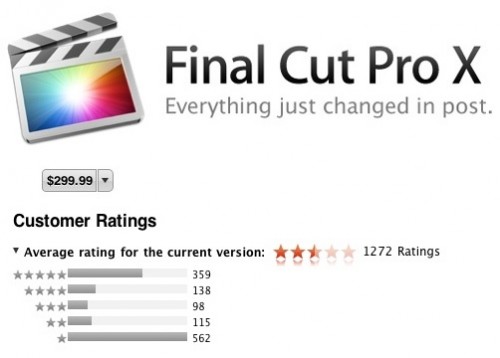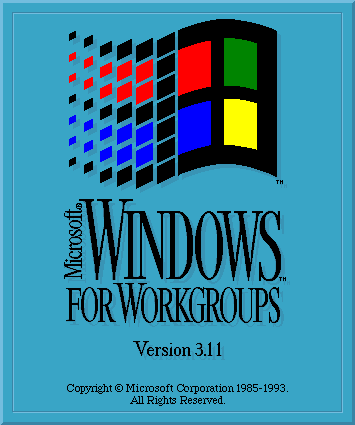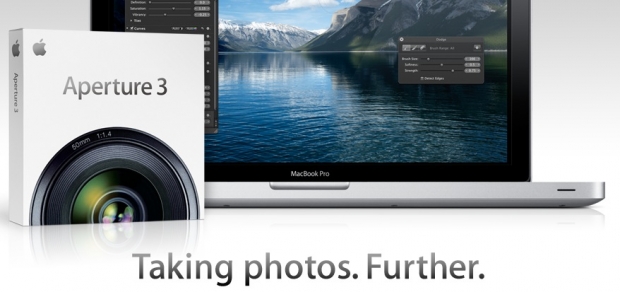
Perhaps I should stick to photography...
I've been thinking about this article for a very long time; I've been using both pieces of software for a while, and I think I've now conclusively made my choice: Adobe Lightroom it is.
There are a couple of subjective reasons for that; Ultimately, I prefer the workflow tools offered up by Lightroom over those built into Aperture, and I like how well-integrated Lightroom and Photoshop CS5 are, for the times when I need editing that's beyond Lightroom's very capable hands.
Apple always had the edge over Lightroom when it comes to pricing; but back in January, Apple took out their machetes and slashed the price even further: the price of Aperture plummeted from $199 to £78.99 (when purchased via the App Store), whilst Lightroom is still retailing at $299.
So, it becomes very hard to recommend one piece of software over the other: They are both capable, and they both have their flaws. The price difference may sway some people (and PC users are out of luck altogether; no Aperture for Windows...), but ultimately, I think the question is very different indeed.
Apple doesn't care about its professional users.

For various reasons, I've been reading and learning more about the film and TV industry (What? Pictures? That move? I can barely get one photo per hour right, never mind 24 pictures per second. You must be out of your mind), and they've been burned by Apple several times now.
You may have spotted the phenomenal backlash recently when Apple launched their new Final Cut Pro, which set the film industry a-bristle. Instead of having two versions of the software; Final Cut Express for the 'prosumer' market and Final Cut Pro for the, well, 'pro' market, they consilidated the software packages back into one. For Express users, that was pretty good news, because for not-a-lot-of-extra-money, they got a lot of extra functionality.
Professional users, however, were not so lucky. Conan O'Brien's editors got a minute of prime-time to whine about the software, and both the app store reviews and the professionals have trashed it for being a monster-leap backwards. The reviewers for the mainstream media, however, generally reviewed it quite favourably. The message is clear: It's still one hell of a capable software editing package, but it's no longer fit for purpose for professional use.
 If this was an once-off occurrence, we might have forgiven Apple, but it isn't. There was another piece of software that was of extreme importance; again to the film industry. Shake was aimed squarely at the professional market, and was used for visual effects and compositing - that is, putting the different pieces of digital footage together into a single frame. You know; adding explosions, and adding backgrounds to shots, that sort of thing.
If this was an once-off occurrence, we might have forgiven Apple, but it isn't. There was another piece of software that was of extreme importance; again to the film industry. Shake was aimed squarely at the professional market, and was used for visual effects and compositing - that is, putting the different pieces of digital footage together into a single frame. You know; adding explosions, and adding backgrounds to shots, that sort of thing.
When Apple announced they were unceremoniously closing the doors on Shake, it shook up the market - several huge film productions - multi-million dollar projects - were completely relying on Shake to get completed. To this day, there are special effect studios who had their tools so deeply integrated with Apple's software that they haven't been able to disentangle themselves; including playing an important role in Weta's production of the blockbuster Avatar, for example. And this despite the fact that the last version of the software was launched in November of 2008 - that's 3 years ago. I'm willing to bet that most of us don't run any 3-year-old software, never mind one of the most popular entertainment industries in the world.
The other big entertainment industry - the music business - also have a software package covered by Apple; Logic Pro. The rumour mill is already spinning that the current version of the software (which was launched in July of 2009) is about to receive an update, reportedly labelled Logic Pro X. Perhaps predictably, current Logic Pro users are already in fear about what Apple might be doing to their beloved piece of software.
But, can't you just use the old software instead?
 Of course, a simple counter-argument to all of the above is "if you don't like the new software, why don't you simply not upgrade"? It is true that this is a workable solution for a while, but the truth of the matter is that software slowly loses its lustre over time: Competitors will bring out features and technology that doesn't exist in the old versions of the software, and without the updates, your software cannot benefit from technology advances that happen in the meantime.
Of course, a simple counter-argument to all of the above is "if you don't like the new software, why don't you simply not upgrade"? It is true that this is a workable solution for a while, but the truth of the matter is that software slowly loses its lustre over time: Competitors will bring out features and technology that doesn't exist in the old versions of the software, and without the updates, your software cannot benefit from technology advances that happen in the meantime.
Worst of all, 'unsupported' software is just that - unsupported. So, if something should go horribly wrong with your files, and you are unable to figure out what is going on, nobody is able to help you: A simple query will be deflected with "What version of the software are you using". If your answer is "an old version", then they won't help you. And rightly so, I think: If you call up a web developer today to tell them their site doesn't look right in Internet Explorer 7, the only appropriate answer, in my opinion, is "Why are you using a piece of software that was introduced in 2006, and has been obsolete since 2009"?
Er, aren't we meant to be talking about photography here?

So what does all of this got to do with photography? Well, when Aperture was first launched back in 2005, it was seen as a bit of a curious beast. Taking a look now at the news around its launch, it's funny to see how news writers couldn't quite make sense of it. http://bit.ly/nUSQox . For one thing, it cost a whopping $499, and it was aimed squarely at professional photographers. Six years ago, it made sense, when Apple were still the underdog; the go-to brand for graphic designers and photographers alike.
Steve Jobs may well have saved Apple when they were at the brink of bankruptcy, against all odds. However, things have changed a lot in Cupertino since then. From being a fringe hardware manufacturer, they've gone well and truly mainstream: iPods, iPhones, Apple TV, the iTunes music store, not to mention the billions and billions of applications sold for iOS devices like the iPhone, iPod Touch and iPad.
 It's hard to imagine any company that is more mainstream than Apple these days; and the software the company is releasing is reflecting that. Instead of innovating, developing and launching industrial-grade tools for professional users, Apple are ramming home their 'simplicity' approach to things. Which is lovely if you are my mother, but not so much if you are a professional artist of any sort.
It's hard to imagine any company that is more mainstream than Apple these days; and the software the company is releasing is reflecting that. Instead of innovating, developing and launching industrial-grade tools for professional users, Apple are ramming home their 'simplicity' approach to things. Which is lovely if you are my mother, but not so much if you are a professional artist of any sort.
Apple are making powerful tools more available to the mainstream, which is a good thing for their stockholders: Obviously, it's better to sell a million copies of a piece of software at $80 per copy, than it is to sell fifty copies at $499. What does appear to be the case, however, is that the accountants have taken over the asylum at Apple, and that software engineers are no longer allowed to push the envelope onwards and upwards.
If you ask me, it's only a matter of time before Aperture starts looking more like iPhoto than a professional piece of photo editing software.
As much as I love Apple, I simply don't trust them not to turn their back on me, the professional photographer, and turn instead to the other 200 people who live in my block of flats. After all, why should they bother selling me one copy, when they can sell them two hundred?
So where does that leave Adobe?
If there's one thing you could never accuse Adobe of, it is to simplify their software. Lightroom will, over the coming years, undoubtedly slowly grow out of control with more and more features and more and more bloat. However, as professional photographers, I think we can handle the occasional hardware upgrade to cope with the additional load it'll put on our computers. As a professional, I can trust Adobe to leave all the tools where I need them; right at my fingertips.
And for that 1400-word reason, I'll stick to Adobe Lightroom for the foreseeable future.





